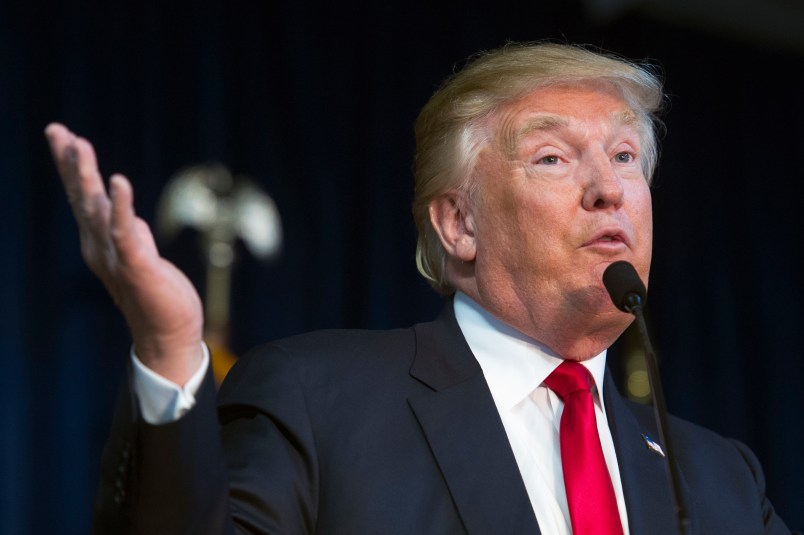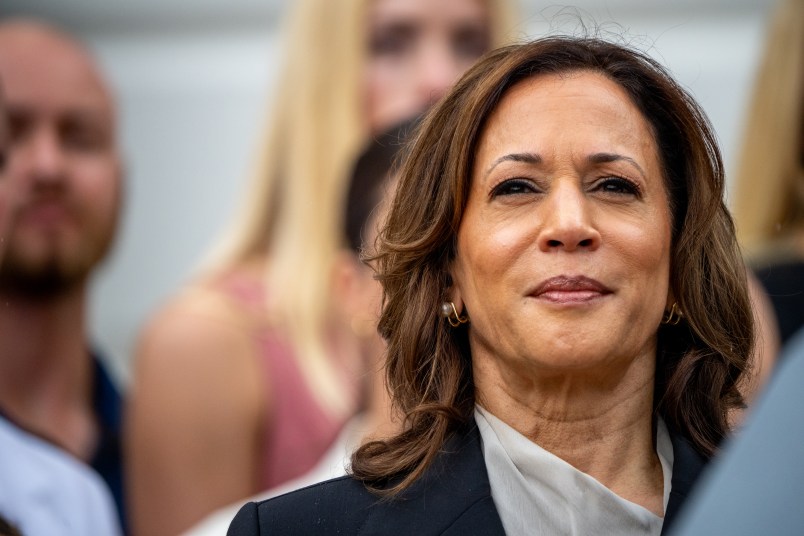The main takeaway from Friday’s Washington Post story on Trump/Russia was that the investigation has now expanded to include a current White House official who is close to the President as a “significant person of interest.” That’s a big deal not least because the description (1. current White House official, 2. present during the campaign and 3. “close to the president”) matches up so closely with the President’s son-in-law, Jared Kushner. But to me that wasn’t the most noteworthy revelation.
What jumped out to me was that the authors twice invoked investigators’ focus on “financial crimes.”
Here are the two passages.
Although the case began quietly last July as an effort to determine whether any Trump associates coordinated with Russian operatives to meddle in the presidential election campaign, the investigative work now being done by the FBI also includes determining whether any financial crimes were committed by people close to the president. The people familiar with the matter said the probe has sharpened into something more fraught for the White House, the FBI and the Justice Department — particularly because of the public steps investigators know they now need to take, the people said.
And then later …
While there has been a loud public debate in recent days over the question of whether the president might have attempted to obstruct justice in his private dealings with Comey, whom Trump fired last week, people familiar with the matter said investigators on the case are more focused on Russian influence operations and possible financial crimes.
We know – and this article confirms – that Paul Manafort is a significant focus of the probe. Even apart from his political work in Ukraine, Manafort appears to have a series of real estate deals, loans, etc. that investigators are looking at. So perhaps it’s something as mundane as stumbling across some kind of crooked, small-bore real estate ventures Manafort participated in while examining his business ties to people in Ukraine.
But my hunch is that it’s a bit more than that.
As you’ve seen, what I’ve been focused on in recent months are a series of business ventures over the last couple decades – either involving President Trump or his close associates – which seemed to rely on capital from people from the former Soviet Union or recent emigres from those countries. Trump himself, Felix Sater, Michael Cohen and many others figure into this as well as Manafort, Trump’s children, the Kushners and still others. My interest of course is to understand the roots of Trump’s affinity with the post-Soviet oligarch world and whatever financial ties or dependence he has on it. But even if you take the Russia/former Soviet Union connection with its geopolitical dynamics out of the equation, you simply can’t read over these deals and not see that Trump and his crew just play way out on the outer fringe of legality at best. At best. People who have done or subsequently did time in the US or other countries repeatedly appear in the picture. So do people from organized crime. A lot.
One thing you find looking through Trump’s history is that after his fall from financial grace a quarter century ago this pattern seemed to become part of the business model. Cut off from capital from the big banks and most people interested in not losing their money, he had to do business with people with decidedly sketchier reputations. Those people, often looking for places to park wealth in real estate, had to accept much higher levels of risk than people with clean reputations. That seemed to lead them to Trump.
Then there’s another level of it. Even apart from big bad acts and corrupt deals, look at the stuff David Fahrenthold dug up on the Trump Foundation and his Potemkin charitable giving. Beyond issues of possible illegality, the big takeaway there was that Trump operates with a seemingly almost total disregard for rule-following or even a lot of elementary record keeping. So on top of substantively shady deals things are executed in really slapdash and hazard ways. In other words, the Trump Organization sounds a lot like the Trump White House. Only it’s a private company, surrounded by a moat of NDAs, all examined by little more than the thin scrutiny of the New York tabloids.
Here are just a couple examples of some color from the kinds of associations and business dealings I’m talking about: one and two.
A forensic accountant would obviously be able to make more sense of the details and, in an investigative context, have access to a vastly greater number of those details. But even with a basic investigative reporting background, you can’t work through even part of Trump’s business history without finding numerous ventures that look like they would not survive first contact with real prosecutorial scrutiny. A key element, perhaps the key element, of the counter-intelligence probe is examining the financial ties between Trump, members of his entourage and people from the Russian business and intelligence worlds. So a close examination of those ventures isn’t some fishing expedition. It’s at the heart of the investigation. A close look at what is available in public records, court filings and news reporting makes me think that that kind of scrutiny would not end well for any of the people involved.








